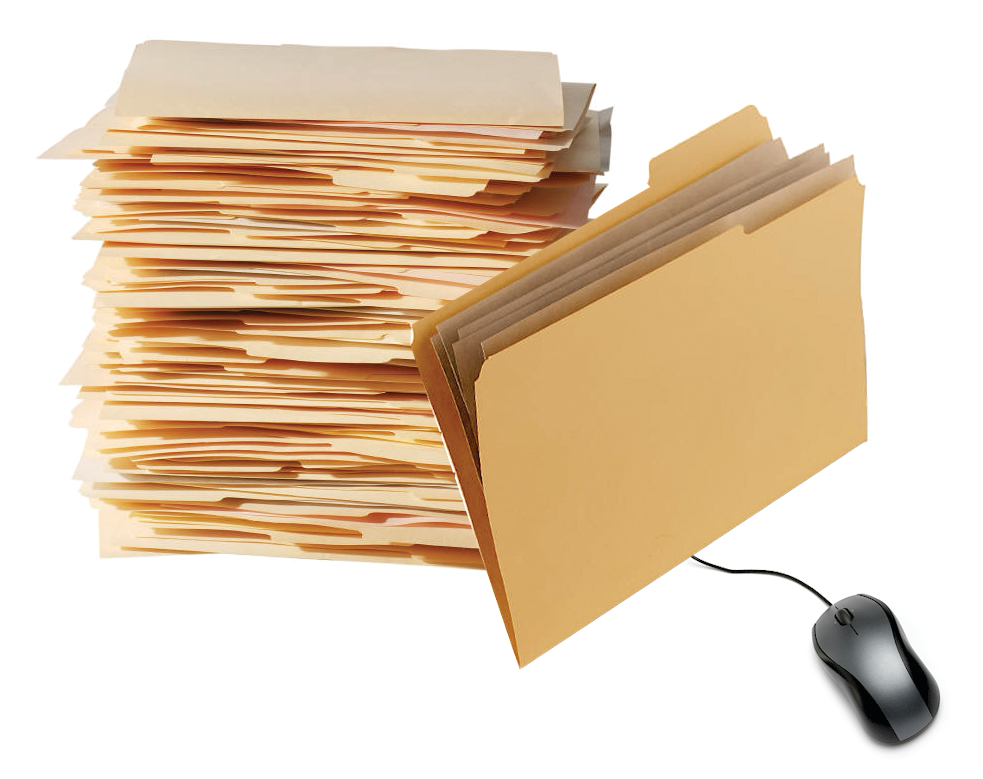Office workers on average, spend more than six hours each week looking for misplaced documents. Improperly managing documents not only is frustrating for everyone, it’s now estimated that nearly $2.5 million per year is wasted looking for those lost or misplaced documents.
If you’re tired of searching for documents, consider implementing a Document Management System (DMS). Managing files electronically helps accounting firms in numerous ways; cutting down on the massive amounts of paper accumulated, eliminating time consuming tasks such as photocopying and filing, significantly reducing the amount of paper used in a firm throughout the year, while also enabling accounting firms to be more responsive to clients, by providing them with access to completed documents, which they can e-sign and upload to the client portal.
While many larger firms already use a DMS, just about any size or type of business would benefit from implementing a DMS in their office. Let’s face it, we lose things. Then we spend a lot of time looking for those things. When we can’t find them, we have to request them from clients again, which does nothing to gain someone’s trust.
But it’s not just us. We can be the most organized, meticulous person in the world, but the document can get lost once it leaves our hands. It can get misfiled. It can be left on the printer and tossed out. It can be put on someone else’s desk and subsequently buried under all of the other papers, never to be seen again.
File access is easy with a DMS, with files stored electronically, typically mimicking a standard filing system. Management can password protect files to guard against unauthorized access, and write-protection is available to prevent document edits or other changes. Electronic storage also allows employees to access documents from home, from a hotel room, or from a client’s office. And storing files electronically means that your documents will be safe should flooding, fire, or other natural disasters hit.
If you want to be more organized, spend less time frantically looking for lost documents, save on paper costs, toner costs, and support staff costs, you’ll strongly consider getting a DMS implemented in your firm or your client’s business.
There are typically two types of document management applications available: Document Storage, which offers a way to organize and store documents electronically, while Document Management systems typically offer more management features such as version control, archiving, and annotation capability. In this issue we reviewed both document storage and complete document management systems, with a separate chart available for both.
The Document Storage products reviewed include:
- Cloud Cabinet by AccountantsWorld
- Drake Documents
- FileCabinet CS by Thomson Reuters
- OfficeTools WorkSpace
- SmartVault Document Storage
The Document Management products reviewed in this issue include:
- CCH Axcess Document
- CCH ProSystem fx Document by Wolters Kluwer, CCH
- PSIsafe
- Doc-It Suite
- eFileCabinet
- GoFileRoom by Thomson Reuters
- iChannel by Conarc
- Onvio Documents by Thomson Reuters
Several of the products reviewed offer a demo, so you can try them out prior to purchasing. Like any software, document management system setup can take some time, but it’s time well spent when you find it takes seconds to locate a document.
If you’re tired of looking at stacks of paper on your desk and everyone else’s, if you want to stop buying cartons and cartons of paper and toner for your copier, take the time to learn about and implement a DMS in your office. You will not miss the paper. I promise.
Thanks for reading CPA Practice Advisor!
Subscribe Already registered? Log In
Need more information? Read the FAQs





